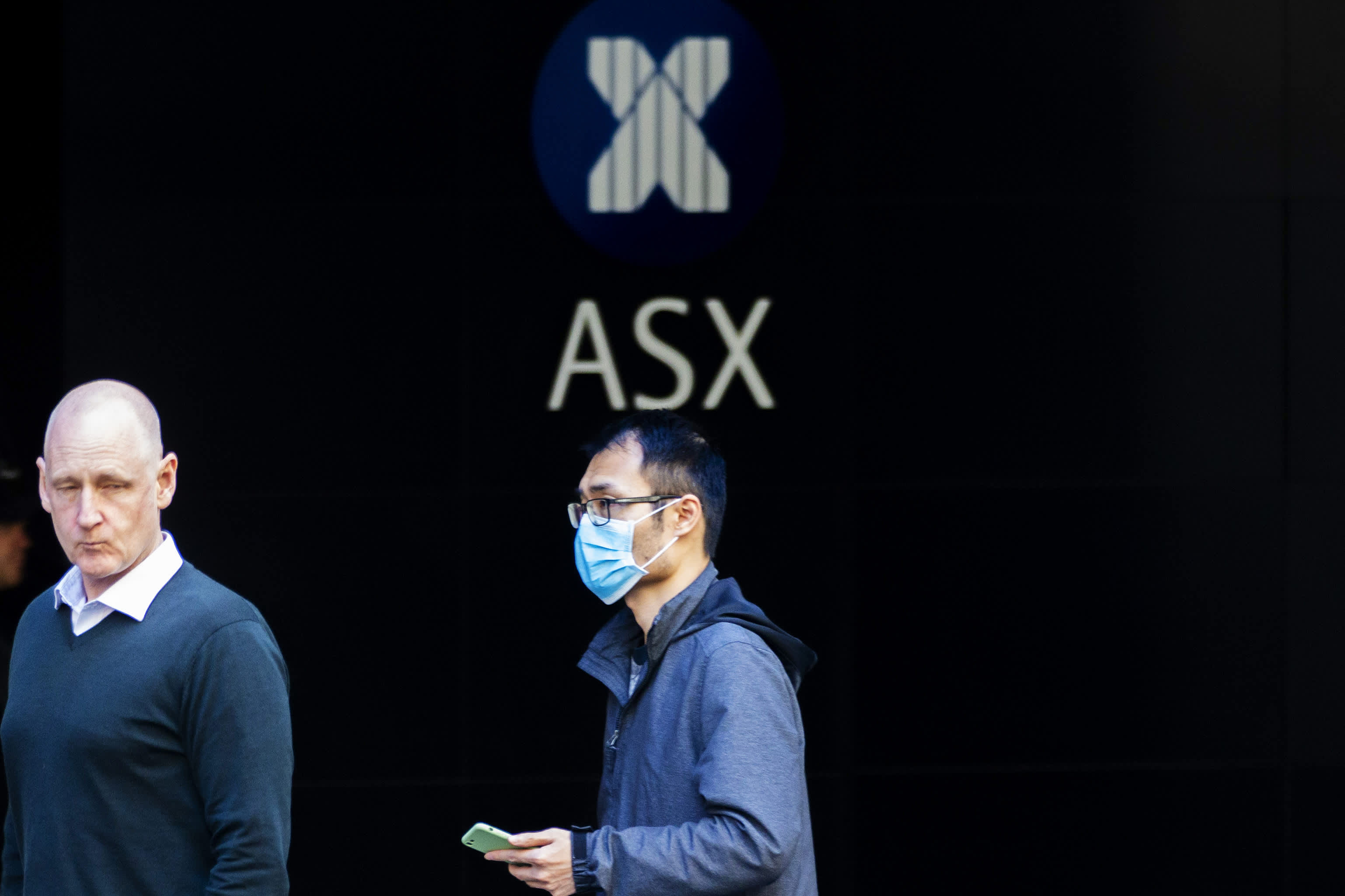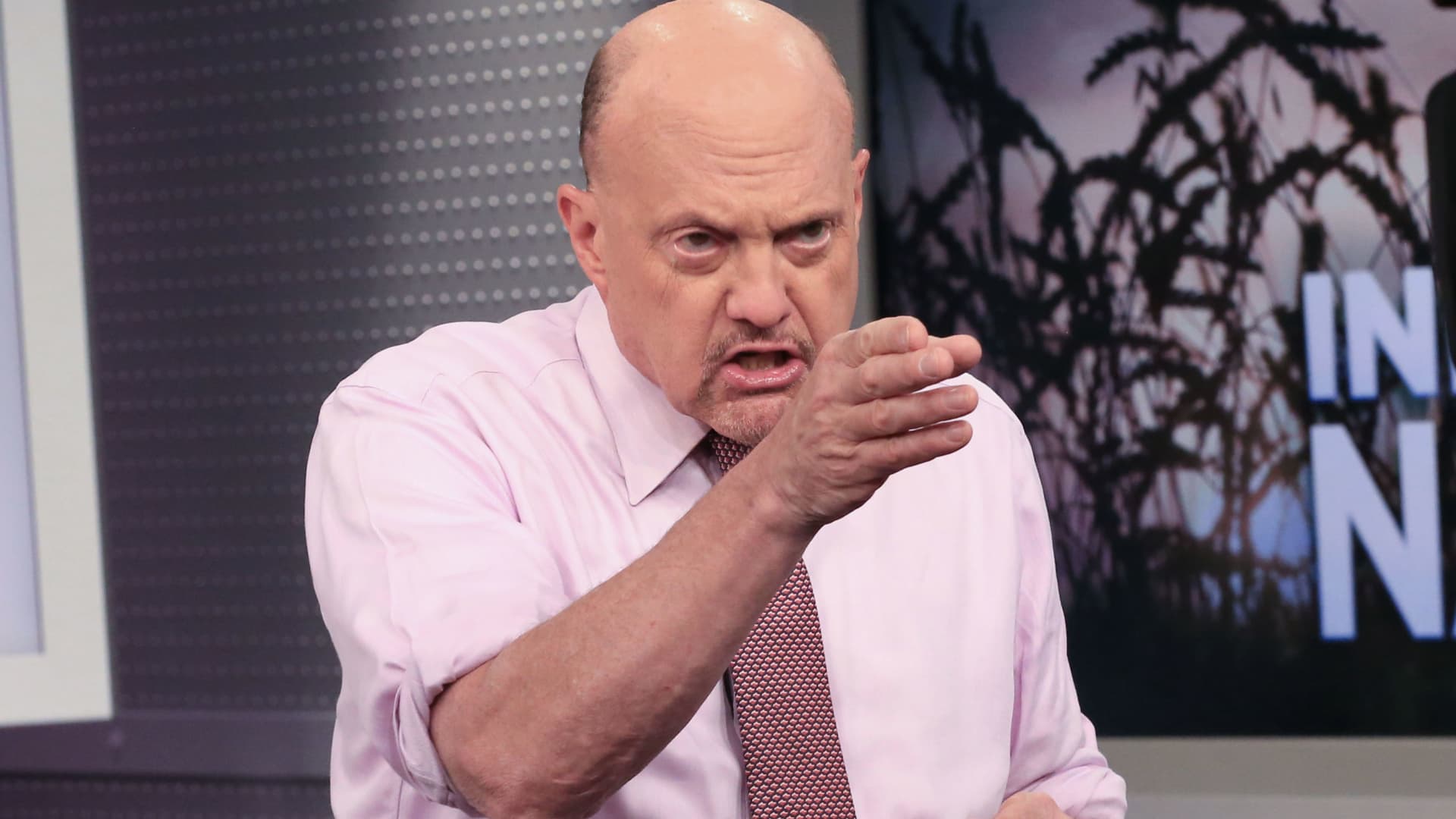Dow falls more than 200 points, heads for losing week as inflation fears overshadow strong earnings
U.S. stock indexes gave up their gains on Friday after a worse-than-expected consumer sentiment reading showed inflation expectations rising.

U.S. stock indexes gave up their gains on Friday as a worse-than-expected consumer sentiment reading overshadowed strong retail sales numbers and earnings reports.
The Dow lost roughly 270 points, or 0.77%, after opening above the 35,000 level. The S&P 500 dipped around 0.7% and the Nasdaq Composite shed about 0.7%.
The three averages are on track to close the week in red. The Dow is down about 0.4% on the week, while the S&P 500 is roughly 0.9% lower and the Nasdaq Composite is around 1.7% lower during the same period.
"The market looks broadly fairly valued to me, with most stocks priced to provide a market rate of return plus or minus a few percent," Bill Miller, chairman and chief investment officer of Miller Value Partners, said in an investor letter.
"There are pockets of what look like appreciable over-valuation and pockets of significant undervaluation in the US market, in my opinion. We can find plenty of names to fill our portfolios and so remain fully invested," the value investor added.
The U.S. consumer sentiment index from the University of Michigan came in at 80.8 for the first half of July, down from 85.5 last month and worse than economists estimated, who projected an increase.
The survey released Friday showed inflation expectations rising with consumers believing prices will increase 4.8% in the next year, the highest level since August 2008.
"That weakness is at face value hard to square with the acceleration in employment growth and the continued resilience of the stock market," said Andrew Hunter, senior U.S. economist at Capital Economics, but the report "suggested that concerns over surging inflation are now outweighing those positive trends."
The latest inflation numbers released earlier this week showed the consumer price index rose 5.4% in June from a year ago, the fastest pace in nearly 13 years.
Inflation fears appeared to overshadow a strong retail sales report released Friday and signals of improving employment. Retail and food service sales rose 0.6% in June, while economists surveyed by Dow Jones had expected a 0.4% decline. Initial jobless claims numbers released Thursday totaled 360,000 for the week ending July 10, its lowest level since March 14, 2020.
The Energy Select Sector SPDR Fund fell about 2% as the worst performing sector in the market Friday, pushing the sector into correction territory. The sector is still up about 29% in 2021 and hit its 52-week high recently on June 10.
Weaker performance from technology stocks also weighed on the market. Shares of Netflix fell ahead of the streaming giant's second-quarter earnings report next week. Nvidia shares also dropped.
Investors digested strong earnings results from the first major week of second-quarter reports. Though some of the nation's largest companies posted healthy earnings and revenues amid the economic recovery, the reaction in the stock market has so far been muted.
"Lately, you can almost guess where stocks are going by just checking the 10-year Treasury yield, which often moves based on perceptions of what the Fed might have up its sleeve," said TD Ameritrade chief market strategist JJ Kinahan. "Earnings absolutely matter, but in the short term, the Fed is still the girl everyone wants to dance with."
"Good earnings might have become an excuse for some investors to take profit. And with earnings expectations so high in general, it takes a really big beat for a company to impress," Kinahan added.
The Financial Select Sector SPDR Fund is down about 1.6% this week despite big profit growth numbers posted by the likes of JPMorgan Chase and Bank of America.
For 18 S&P 500 companies that beat analyst estimates for second-quarter earnings this week, the average earnings-per-share result was 18% higher than expected. But those companies saw their shares fall 0.58% on average after reporting.
Much of the market's upward pressure over the last week has come from a handful of mega-cap internet and communications stocks. Apple and Google-parent Alphabet are up this week.
— CNBC's Maggie Fitzgerald and Michael Bloom contributed reporting.
Become a smarter investor with CNBC Pro.
Get stock picks, analyst calls, exclusive interviews and access to CNBC TV.
Sign up to start a free trial today

 UsenB
UsenB 




























.jpg&h=630&w=1200&q=100&v=6e07dc5773&c=1)



